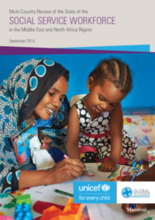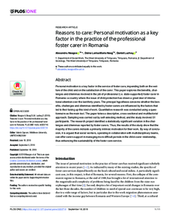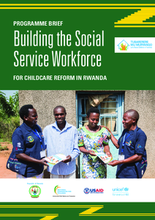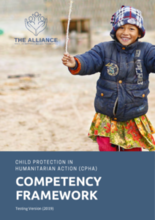Displaying 181 - 190 of 505
This report is a review of the social service workforce in eight countries: Djibouti, Iran, Jordan, Lebanon, Morocco, Palestine, Sudan and Tunisia.
This country care review includes the Concluding Observations for the Committee on the Rights of the Child and the Committee on the Rights of Persons with Disabilities adopted as part of the Committees' examinations of Greece’s reports, as well as other care-related concluding observations, ratification dates, and links to the Universal Periodic Review and Hague Intercountry Adoption Country Profile.
This paper explores the benefits, challenges and dilemmas involved in the job of professional (i.e. state-supported) foster carer in Romania–a country where the issue of child protection has drawn a great deal of international attention over the last thirty years.
In this video, Leang Lo, from Save the Children Cambodia, shares some of his learning that informed the development of the Social Work Supervision Training Program for the member organisations of Family Care First (a network dedicated to supporting children to live in safe nurturing family-based care).
Comprised of 12 videos and accompanying discussion guides, this video series features the learning from practitioners working across a range of care-related programs and practices in Cambodia.
This secondary analysis of data describing 3,035 parents, drawn from the National Survey of Child and Adolescent Well-Being II, identified factors fostering the collaborative alliance of parents and caseworkers within the child welfare system.
This article focuses on professional storytelling among child welfare social workers. It examines how social workers construct their professional role through team talk and the implications of this for our understanding of professional resilience and defensiveness.
The Learning and Development Working Group (LDWG) of the Alliance for Child Protection in Humanitarian Action has revised the 2010 Child Protection in Humanitarian Action Competency Framework to this testing version.
This study used qualitative telephone interviews with participants sampled from a statewide cohort of newly-hired, frontline child welfare workers. The authors used thematic analysis to consider participants' training experiences and the conditions that facilitated meaning.





